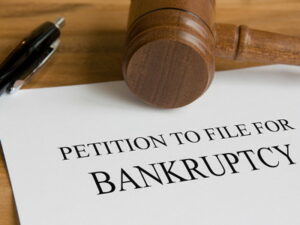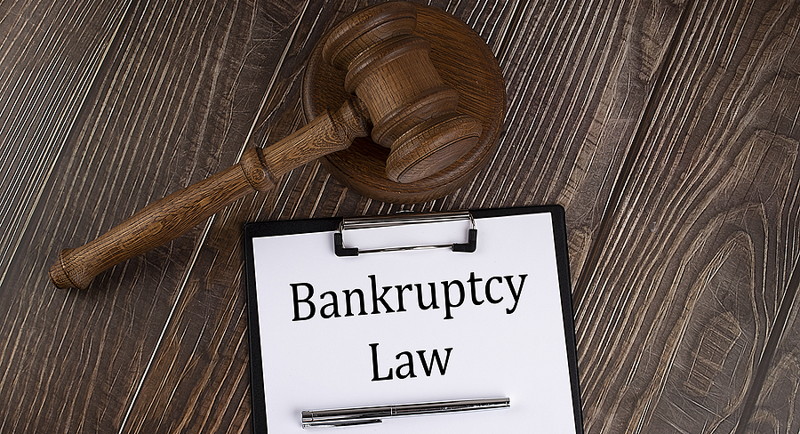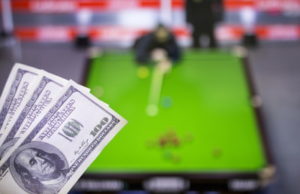 Ultimately most people gamble with what they can afford to lose for entertainment but in some cases people can lose a lot of money through gambling. This can in some instances lead to someone declaring bankruptcy, but can you declare bankruptcy for gambling debt and how are those debts viewed when making an application.
Ultimately most people gamble with what they can afford to lose for entertainment but in some cases people can lose a lot of money through gambling. This can in some instances lead to someone declaring bankruptcy, but can you declare bankruptcy for gambling debt and how are those debts viewed when making an application.
Gambling may not even be the ultimate cause of bankruptcy but could be part of an overall filing if someone is in debt for other reasons and also has gambling debts.
Declaring bankruptcy has been given a high profile in the celebrity and entertainment world for many years, with multiple stars and sportspeople having to declare themselves without money after spending more than they have.
Singer Toni Braxton filed for bankruptcy in 1998 in order to escape her contract with LaFace/Arista, a series of bad investments left former professional boxer George Foreman with no choice but to file for bankruptcy in 1987, and well-known rapper 50 Cent had to do the same in 2015 in order to reorganise his business assets after facing a lawsuit.
None of those stars filed for bankruptcy due to gambling issues, though. That doesn’t mean that famous people haven’t suffered from gambling addiction, of course. Stars like actor Ben Affleck, rapper Nelly, swimmer Michael Phelps and former NBA sportsman Charles Barkley have all suffered with gambling problems.
Is a debt acquired through gambling just the same as any other? An amount that has been amassed that the person in question cannot afford to repay? Let’s take a look at if it is possible to file for bankruptcy due to gambling debts and the rules around it.
How Are Gambling Debts Seen Legally?

Debts obtained from participating in gambling have been looked upon as debts of honour in the past. At least in terms of gambling in the United Kingdom. And with this being the case, it meant that the debts could not be enforced by law in court. However, the arrival of the Gambling Act 2005 changed all that. Once that Act became official in September of 2007, it introduced new legislation surrounding gambling debts.
In 2020 the UKGC banned the use of credit cards to gamble in the UK, it also stipulated that other forms of credit should not be used to fund gambling. Companies are now obliged to perform affordability checks and source of funds checks, however these generally only kick in at higher deposit, bet and withdrawal amounts at present.
Of course there are people who still use forms of credit to fund gambling and, therefore, while gambling debts aren’t quite as prolific as they have been in the past, they do still exist. It is all too easy for someone to lose control of how much they are spending on gambling this way, and problematic situations can arise quickly.
The first course of action that someone in this circumstance should take is to seek help to stop gambling altogether. Numerous charities and organisations exist across the country to assist players with avoiding gambling activity if they are experiencing problems. In the end, a player needs to take responsibility for the debt that they have accrued from gambling.
Gambling debts on loans and overdrafts can be handled in pretty much the same way as any other form of debt. Yet if the debtor does indeed go bankrupt, then a Bankruptcy Restriction Order (BRO) may also be issued to them. The behaviour of the person is then judged to have been very much reckless, and this places them under bankruptcy restrictions for anywhere from two years and beyond.
This is what happened to a resident of Barnet in 2019. Two years prior, 42-year-old Shahriar Farrokhzadeh had asked a friend to invest £280,000 in a property deal with him. He promised his friend over £60,000 in profit in return for that investment, and that amount would be repaid to him in less than two months.
Farrokhzadeh in fact did not do that, and instead squandered their friend’s £280k investment on gambling. He was then ordered bankrupt by the courts in April of 2019, having liabilities of just under £4 million and accepted a total of 12 years of bankruptcy restrictions. This means that he is unable to borrow more than £500 without disclosing his bankrupt status, and he cannot operate as a company director without permission of a court.
Debtors can also attempt to place bankruptcy debts into an Individual Voluntary Arrangement (IVA). Creditors do have the option of denying this application though, especially if the debts are identified as having arisen from gambling activity. Fortunately, debts derived from this pastime are frequently included in successful IVA applications, so it still remains as a option to go for.
Is Gambling Debt Included in Bankruptcy?
 Gambling debts will not stop you from being able to declare bankruptcy. It is still a solution that is available to you, with the debt being included in the same way that any other type of debt would be.
Gambling debts will not stop you from being able to declare bankruptcy. It is still a solution that is available to you, with the debt being included in the same way that any other type of debt would be.
When filing for bankruptcy, you will usually be asked whether or not you have lost any money through betting or gambling activity previously. If you have, then it is important to be honest about it. And despite what people may think, even if all of your debt has been accrued this way, you aren’t likely to be rejected for bankruptcy.
Generally speaking, an adjudicator who is reviewing your application will not be overly bothered by how the debt was acquired. Yet if you do not mention that it was acquired through gambling, then that could reflect very badly on you later on when it likely comes to light, which is why it is important to be honest from the start.
The standard timeframe for bankruptcy is usually 12 months. After this period, you will be discharged in most instances. That being said, if debt has been built up from gambling, then you may be asked to accept the aforementioned BRO as a result, which restricts your ability to borrow large sums of money. Should you only have a small amount of debt coming from gambling, then this isn’t likely to be a factor in the outcome of your bankruptcy.
Many people may wonder whether they have to prove that they have stopped gambling before applying for bankruptcy. And while this isn’t specifically necessary, it is definitely a good thing to be able to prove. It reflects well on you if you can display a bank statement or other information regarding a lack of gambling transactions within the past several months.
Organisations like Gamblers Anonymous and GamCare can help with providing advice on this. Naturally, if you are still participating in gambling, then you risk ending up in more debt after declaring bankruptcy. Any new debt incurred after you declare yourself bankrupt is not included, so you are liable to pay it.
The Story of a Snooker Legend Going Bankrupt
 Willie Thorne is known to snooker fans as one of the best players to have ever engaged in the sport. He won a single ranking title from the 1985 Classic and reached the final of the UK Championship in that same year, where he lost to Steve Davis. Thorne was most-known for his break-building though, and he was amongst several of the first players to compile 100 century breaks. He also went on to earn the nickname of Mr Maximum before he retired as a player in 2001.
Willie Thorne is known to snooker fans as one of the best players to have ever engaged in the sport. He won a single ranking title from the 1985 Classic and reached the final of the UK Championship in that same year, where he lost to Steve Davis. Thorne was most-known for his break-building though, and he was amongst several of the first players to compile 100 century breaks. He also went on to earn the nickname of Mr Maximum before he retired as a player in 2001.
Yet in 2015, it was revealed that Thorne was in the process of going bankrupt due to a £1 million gambling addiction, which pushed him to a suicide attempt. He would proceed to drive to a hotel with a knife in his bag and then write three suicide notes to members of his family. Fortunately, before he was able to go ahead with his decision, his wife Jill tracked him down and entered the room.
Thorne began gambling in a billiard hall in Leicester when he was just 16. Yet when he peaked at the number seven spot in the mid-80s, he had a serious gambling problem in tow. In one incident years later, he wagered £38,000 on a match-up featuring John Parrott.
He wagered that Parrott would lose because he had lost his personal snooker cue and he had to utilise one that had been supplied by the venue itself. Thorne was commentating on the match, and much to his dismay, Parrott went on to recover from a slow start and come out victorious. He spoke to The Guardian in 2004 and said that he had often placed bets of up to £20,000 on horse races, too.
The 2015 interview that Thorne did with The Mirror saw him break down after admitting that he had lost millions by betting at bookies after his retirement, and that he was also left owing cash to moneylenders. One of them had even threatened to cut his wife’s fingers off if they did not receive repayment.
Thorne also experienced two thugs turning up at his house to demand £300,000 in cash, and his house was cleared of all its contents (including his snooker trophies) so that they would not fall into the hands of bailiffs.
He explained that when he retired from the sport, he found it difficult to go on without being known as “Willie Thorne the snooker player”. So, the hours he had put into practicing his snooker gameplay was taken over by time spent betting on horses.
The conclusion of that interview saw him admit that he owes up to £1 million, which came about from him borrowing funds to either settle his gambling debts or to proceed with placing new bets. More than 30 people were owed money by the former pro snooker player. After suffering through prostate cancer in 2015, he was diagnosed with leukaemia in 2020, which he ultimately fell victim to at age 66.
English Defence League Founder Declares Himself Bankrupt

Another much more recent instance of gambling debts becoming too much to handle came about in June of 2022. This involved the founder of the English Defence League (EDL), Tommy Robinson (real name Stephen Christopher Yaxley-Lennon). Having been convicted on multiple occasions for violence and fraud, as well as a series of other felonies, the far-right, anti-Islam activist is known for ending up in bad situations.
But it was discovered that Robinson owed hundreds of thousands of pounds upon declaring himself bankrupt in 2021. This came about when he had to give evidence about his finances when he lost a libel case and was ordered to pay damages to a Syrian teenager after he defamed him online.
Upon appearing at the Royal Courts of Justice in London for a hearing to discuss the money he owes to the teenager, he said that at one point in his life he had been spending around £100,000 on gambling in physical and online casinos.
After receiving thousands of pounds in donations from supporters, he wasted the funds on drinking, alcohol and partying, which included his gambling activity. According to Robinson himself, he received at least £1,000 every month from his supporters in 2020.
He went on to state that in the build-up to declaring bankruptcy in March of 2021 he had “suffered a total mental breakdown for two or three years”, and this has left him in what he described as a “total mess”. Despite this, Robinson no longer lives in the United Kingdom and only returns when he is working.
After the finalisation of his case with Syrian teenager Jamal Hijazi, who was assaulted at Almondbury Community School in Huddersfield in 2018, Robinson was ordered to pay £100,000 in damages. The EDL founder had been found guilty of making false claims about Hijazi, and further significant legal costs were added on to the judgement against Robinson, too.
Oddly enough, Robinson has received more than £4 million in donations and sponsorship over the years, with much of that coming from foreign sources. Yet following his libel trial, he incurred an estimated £1.6 million in costs. This came about following his file for bankruptcy in 2021, which he did under the name of Stephen Christopher Lennon.
Clearly one who doesn’t mind rebelling against the law, he had little stopping him from spending £100,000 of donations on gambling prior to his bankrupt status.
